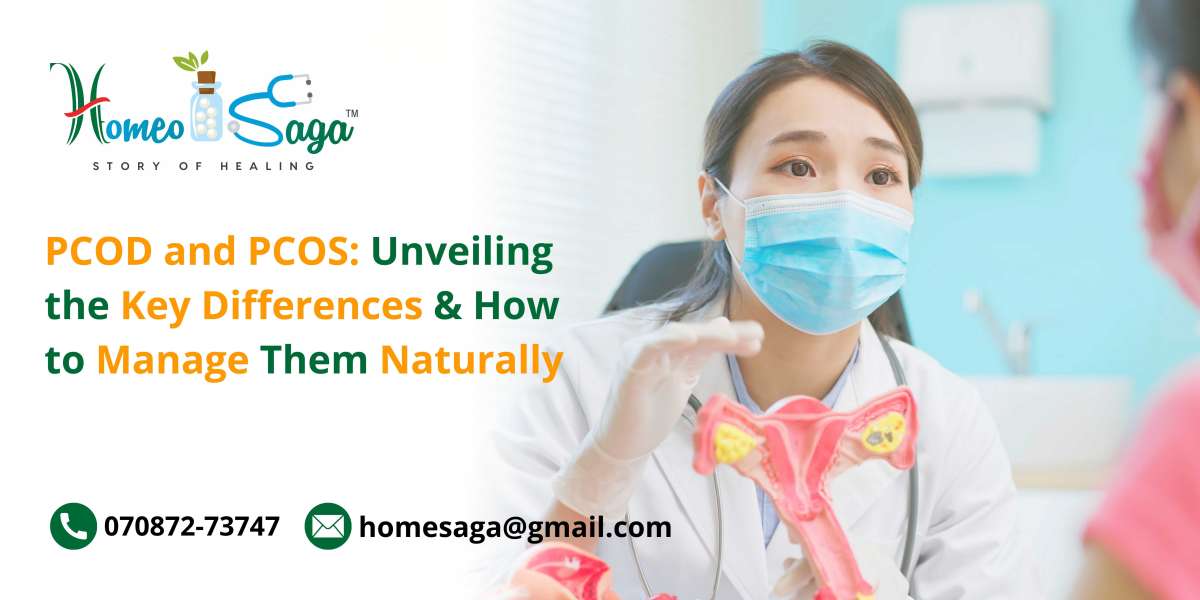Polycystic Ovary Disease (PCOD) and Polycystic Ovary Syndrome (PCOS) are terms often confused, yet they represent distinct conditions. Knowing the differences between PCOD and PCOS is crucial for effective treatment and management. In this article, we will delve into what sets these two conditions apart and explore natural ways to manage their symptoms.
What is PCOD?
Polycystic Ovarian Disease (PCOD) is characterized by the formation of multiple cysts in the ovaries. This condition can lead to hormonal imbalances, resulting in irregular menstrual cycles, weight gain, and various other symptoms. While PCOD can cause discomfort and health issues, it is generally viewed as less severe than PCOS.
What is PCOS?
Polycystic Ovary Syndrome (PCOS) is a more complex disorder that encompasses a wider range of symptoms and potential complications. Women with PCOS often face significant hormonal imbalances, leading to irregular periods, excessive hair growth (hirsutism), acne, and fertility challenges. PCOS is frequently associated with insulin resistance, increasing the risk of type 2 diabetes and other metabolic issues.
Key Differences Between PCOD and PCOS
Hormonal Levels: PCOD involves hormonal changes but is generally milder compared to the severe hormonal disruptions seen in PCOS.
Presence of Cysts: Both conditions involve cysts, but in PCOS, they can be more numerous and lead to serious health complications.
Metabolic Impact: PCOS is linked with metabolic syndrome and insulin resistance, making it a more complex condition to manage. PCOD usually lacks these metabolic concerns.
Symptom Severity: Women with PCOS often experience more pronounced symptoms, including severe acne and hirsutism, which may not be as prevalent in those with PCOD.
Natural Management Strategies
Managing PCOD and PCOS naturally involves adopting healthy lifestyle changes that can significantly improve symptoms.
1. Nutrition
A well-rounded diet plays a vital role in managing both conditions. Here are some dietary tips:
- Emphasize Whole Foods: Incorporate fruits, vegetables, whole grains, and lean proteins into your meals.
- Choose Healthy Fats: Incorporate sources of omega-3 fatty acids, such as fatty fish, walnuts, and flaxseeds.
- Opt for Low Glycemic Index Foods: Foods with a low GI help stabilize blood sugar levels, benefiting insulin sensitivity.
2. Regular Exercise
Physical activity is essential for managing weight and improving insulin sensitivity. Aim for a balanced routine that includes both cardiovascular exercises (like walking or cycling) and strength training. Additionally, activities such as yoga can aid in stress relief.
3. Stress Reduction Techniques
Stress can worsen symptoms of both PCOD and PCOS. Practicing relaxation methods such as meditation, deep breathing exercises, or yoga can help manage stress effectively.
4. Herbal Supplements
Certain herbal remedies may offer relief. For instance, spearmint tea can help reduce hirsutism, while cinnamon may improve insulin sensitivity. However, it's essential to consult a healthcare professional before trying any new supplements.
5. Regular Health Check-ups
Regular visits to your healthcare provider can help you monitor hormone levels and overall health. Blood tests can identify any imbalances and guide treatment options, ensuring you stay on track with your management plan.
Conclusion
Recognizing the distinctions between PCOD and PCOS is vital for proper management. While both conditions share certain traits, they require unique approaches for effective treatment. By embracing a holistic lifestyle that includes nutritious eating, regular physical activity, stress management, and consistent healthcare monitoring, women can navigate the challenges of PCOD and PCOS naturally. Always consult with a healthcare professional to tailor a management plan that suits your individual needs. Taking these proactive steps can lead to a healthier, more balanced life.








